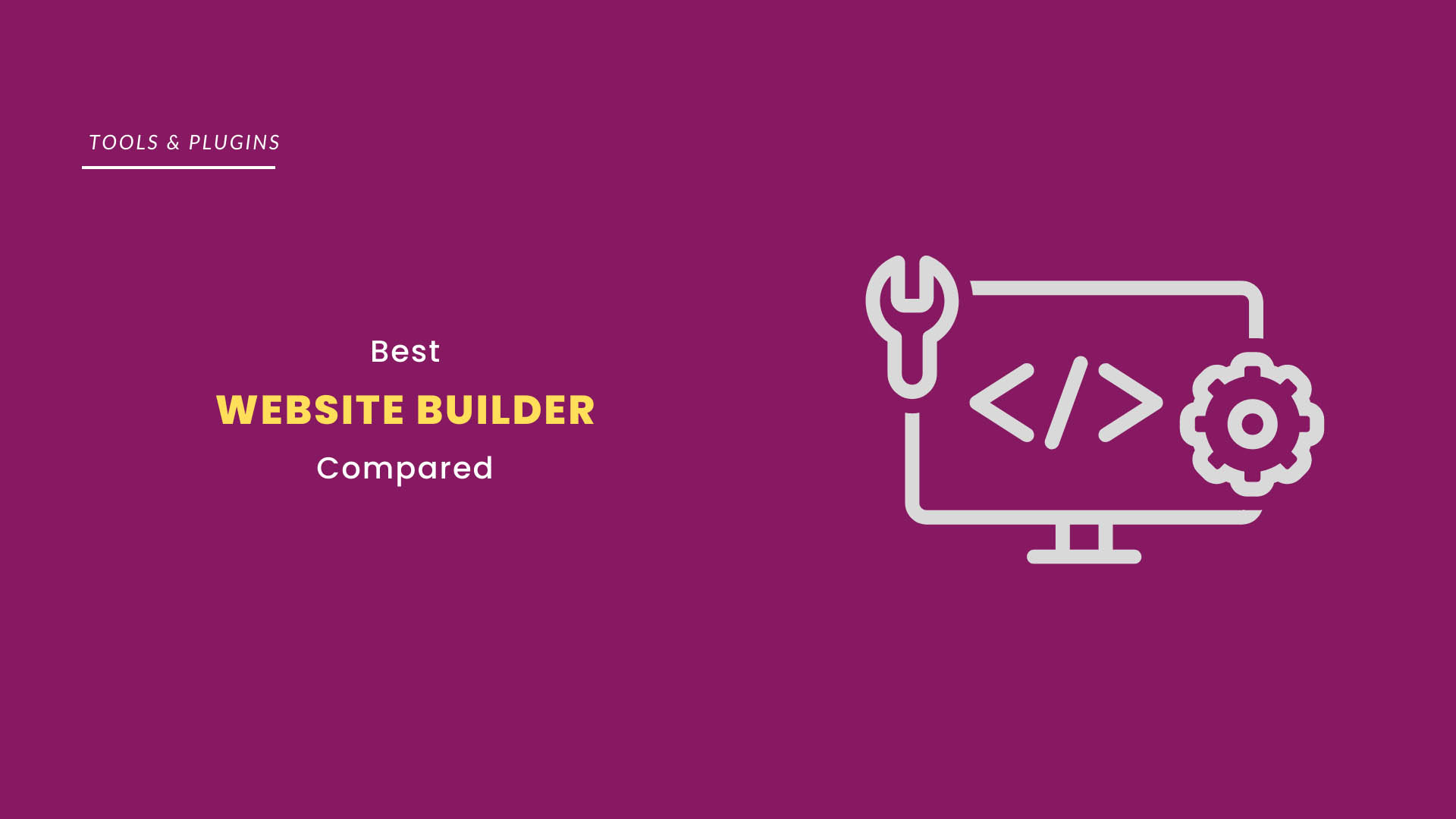Creating a website has become a crucial step for anyone looking to establish an online presence, whether for business, blogging, or personal use. But with so many website builders available, how do you choose the best one? This guide will walk you through everything you need to know to make an informed decision.
Importance of Choosing the Right Website Builder
Choosing the right website builder can make or break your online success. The right platform will help you create a visually appealing, functional, and user-friendly website that aligns with your goals. Conversely, choosing the wrong builder can lead to frustration, wasted time, and a website that doesn’t meet your needs. In a world where first impressions matter, your website is often the first interaction people have with your brand, so it’s essential to make it count.
Purpose of the Guide
This guide aims to provide you with a comprehensive understanding of the factors to consider when selecting a website builder. By the end of this article, you’ll have the knowledge to choose the best website builder that fits your specific needs, ensuring that your online presence is both effective and professional.
Understanding Website Builders
What is a Website Builder?
A website builder is a software platform that allows users to create websites without needing to write code. These platforms are designed to be user-friendly, providing tools and templates that make it easy to design and launch a website. Website builders can be broadly categorized into two types:
Hosted Website Builders: These are all-in-one platforms that include hosting, design tools, and domain management (e.g., Wix, Weebly).
Self-Hosted Website Builders: These involve using a content management system (CMS) like WordPress, where you have to manage hosting, design, and maintenance separately.
Types of Website Builders
Understanding the different types of website builders will help you narrow down your options:
Drag-and-Drop Builders: These platforms allow you to build your website by dragging and dropping elements onto a page. They are highly intuitive and perfect for beginners. Examples include Wix and Weebly.
Content Management Systems (CMS): A CMS like WordPress provides more flexibility and control but comes with a steeper learning curve. It’s ideal for users who want to create more complex websites with custom functionality.
E-commerce Website Builders: Platforms like Shopify and BigCommerce are specifically designed for creating online stores. They come with built-in features like payment gateways, inventory management, and shopping cart functionality.
Specialized Builders: Some builders are tailored for specific needs, such as portfolios, blogs, or specific industries (e.g., Format for photographers).
III. Key Factors to Consider When Choosing a Website Builder
Ease of Use
User Interface: The interface of a website builder should be intuitive and easy to navigate. A good user interface will allow you to find what you need without hunting through menus or searching for help.
Learning Curve: Depending on your technical expertise, you may want a builder that’s easy to learn and quick to master. Beginners may prefer drag-and-drop builders, while more experienced users might opt for a CMS with more advanced options.
Design and Customization
Templates and Themes: The quality and variety of templates or themes available are crucial. Look for builders that offer a wide range of responsive and customizable templates that match your brand’s aesthetic.
Customization Options: Some website builders allow extensive customization, including access to HTML/CSS. If you want complete control over your site’s design, make sure the builder you choose offers these options.
Features and Functionality
Built-in Features: Consider the features that come out of the box with the website builder. Important features might include SEO tools, analytics, social media integration, and blogging capabilities.
Plugin and App Integration: The ability to extend your site’s functionality through plugins or apps is vital. Check if the builder supports the integrations you need, whether it’s for email marketing, e-commerce, or multimedia.
Mobile Responsiveness: With more users accessing websites on mobile devices, it’s essential that your website builder supports responsive design. This ensures your site looks great on any device, from smartphones to desktops.
Performance and Reliability
Hosting Quality: The speed and uptime of your website are directly influenced by the quality of hosting provided by the builder. Ensure the platform offers reliable hosting with minimal downtime.
Security Features: Security should be a top priority. Look for builders that include SSL certificates, automatic backups, and protection against malware and hacking.
Scalability
Ability to Grow: As your website grows, you’ll need a builder that can scale with you. Consider whether the builder can handle increased traffic, more content, or additional e-commerce features.
Upgrading Options: Look at the availability of advanced features and higher-tier plans. Ensure that the builder you choose offers a clear upgrade path as your needs evolve.
Pricing
Pricing Models: Website builders typically offer different pricing models, including free plans, monthly subscriptions, and one-time payments. Be sure to understand the total cost, including any additional fees for domains, hosting, or premium features.
Value for Money: Consider what you’re getting for the price. A builder may be inexpensive, but if it lacks critical features, it might not be the best value. Conversely, a more expensive builder might offer more features and support, providing better value in the long run.
Customer Support
Availability: Customer support is crucial, especially if you encounter issues or need help with your site. Check the availability of support options like live chat, email, and phone support.
Quality of Support: The quality of customer support can vary significantly. Look for reviews or testimonials about the builder’s support team to ensure they are responsive and helpful.
Comparing Popular Website Builders
Wix
Wix is a popular drag-and-drop website builder known for its ease of use and a wide range of templates. It’s ideal for beginners and small businesses who want to create a visually appealing website quickly. However, its customization options are somewhat limited compared to more advanced platforms.
WordPress.com vs. WordPress.org
WordPress.com is a hosted platform that’s easier to set up but offers less flexibility. WordPress.org, on the other hand, is a self-hosted CMS that provides complete control over your site but requires more technical knowledge. Choose WordPress.com for simplicity, and WordPress.org if you want more customization and scalability.
Squarespace
Squarespace is known for its stunning templates and strong design focus, making it ideal for creatives and businesses that prioritize aesthetics. It also offers robust e-commerce features, though it can be pricier than other builders.
Shopify
Shopify is the go-to platform for e-commerce. It’s built specifically for online stores and offers everything you need to sell products online, from inventory management to payment processing. It’s perfect for entrepreneurs looking to start an online store, but it might be overkill for non-e-commerce sites.
Weebly
Weebly offers a balance between ease of use and customization, making it a good choice for small businesses and portfolios. While not as flexible as WordPress, it’s more straightforward for those who want to get online quickly without sacrificing too much control.
Other Notable Builders
Other builders like BigCommerce, Joomla, and GoDaddy also offer unique features and advantages. BigCommerce, for example, is another strong contender for e-commerce, while Joomla offers a middle ground between WordPress and drag-and-drop builders in terms of customization and ease of use.
Step-by-Step Guide to Choosing the Right Builder
Assessing Your Needs
Start by defining your website’s purpose. Are you creating a blog, a portfolio, an e-commerce store, or a business website? Identify your target audience and what features are essential for your site.
Setting a Budget
Determine your budget, keeping in mind not just the initial costs but also potential future expenses like upgrades, plugins, and maintenance. Balance your budget with your feature requirements to find the best value.
Exploring and Testing Builders
Most website builders offer free trials or demos. Take advantage of these to get a feel for the platform’s interface and features. Testing multiple builders will give you a better idea of which one suits your needs best.
Reading Reviews and Seeking Recommendations
Look for user reviews and professional recommendations to gauge the strengths and weaknesses of different builders. Pay attention to feedback on usability, customer support, and overall satisfaction.
Making the Final Decision
Weigh the pros and cons based on the factors discussed in this guide. Consider your needs, budget, and long-term goals to make an informed decision that will set the foundation for your online presence.
Conclusion
Recap of Key Points
Choosing the right website builder is crucial to the success of your online presence. The best builder for you will depend on your specific needs, whether it’s ease of use, customization options, features, or scalability.
Encouragement to Start Building
With the knowledge gained from this guide, you’re now equipped to make a confident choice. Remember, the right website builder will not only make your site look great but also ensure it functions smoothly and meets your goals.
Final Thoughts
The best website builder is the one that fits your unique requirements. Don’t rush the decision—take the time to explore your options, and you’ll find the perfect platform to bring your vision to life.
VII. Additional Resources
Links to Comparison Tools
For further assistance in choosing a website builder, you can use comparison tools like WebsiteToolTester or G2. These tools allow you to compare different builders side by side based on features, pricing, and user reviews.
Further Reading
Explore more articles and eBooks on topics like website design, SEO, and content management to further enhance your website-building skills.
Checklists
Download our Website Builder Checklist to ensure you’re considering all the essential factors when making your decision.
By following this comprehensive guide, you’ll be well on your way to choosing the best website builder that perfectly suits your needs, helping you create a successful and professional online presence.
Join Our Newsletter
Subscribe to our newsletter for more updates and the latest blog posts.


0 Comments